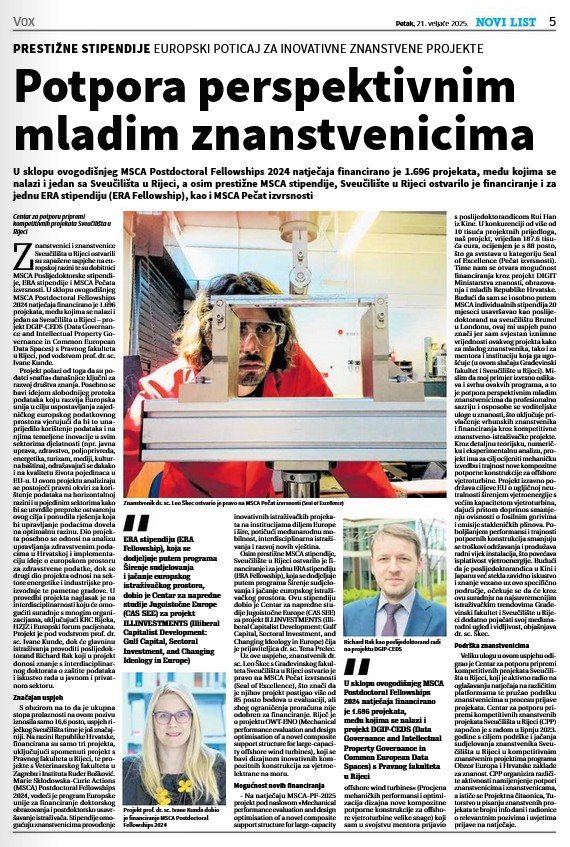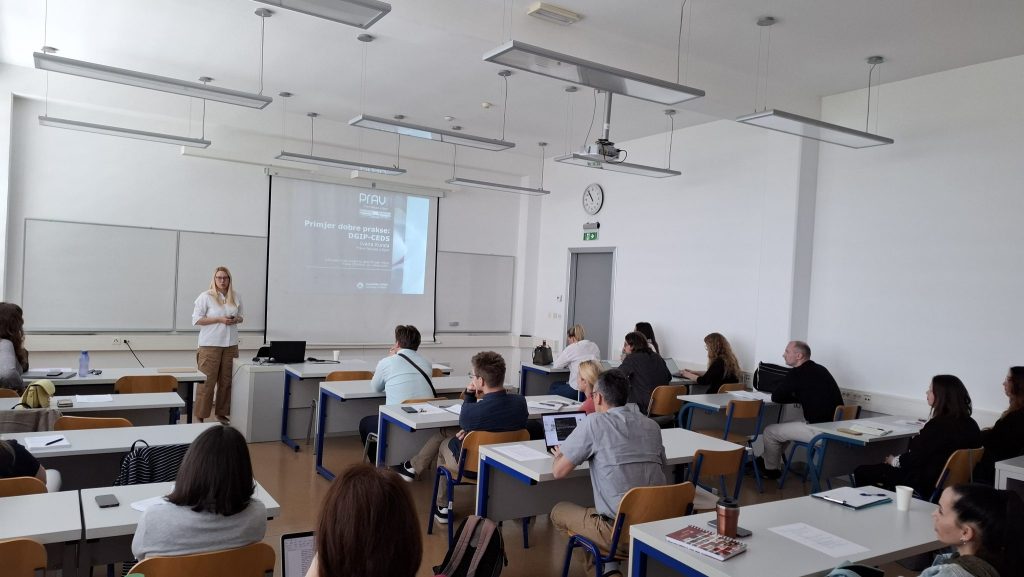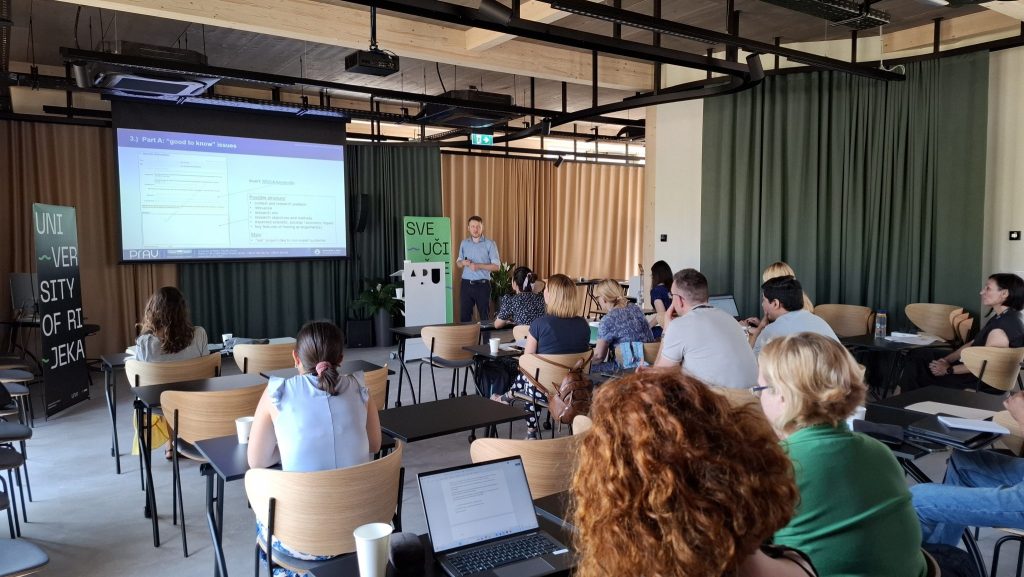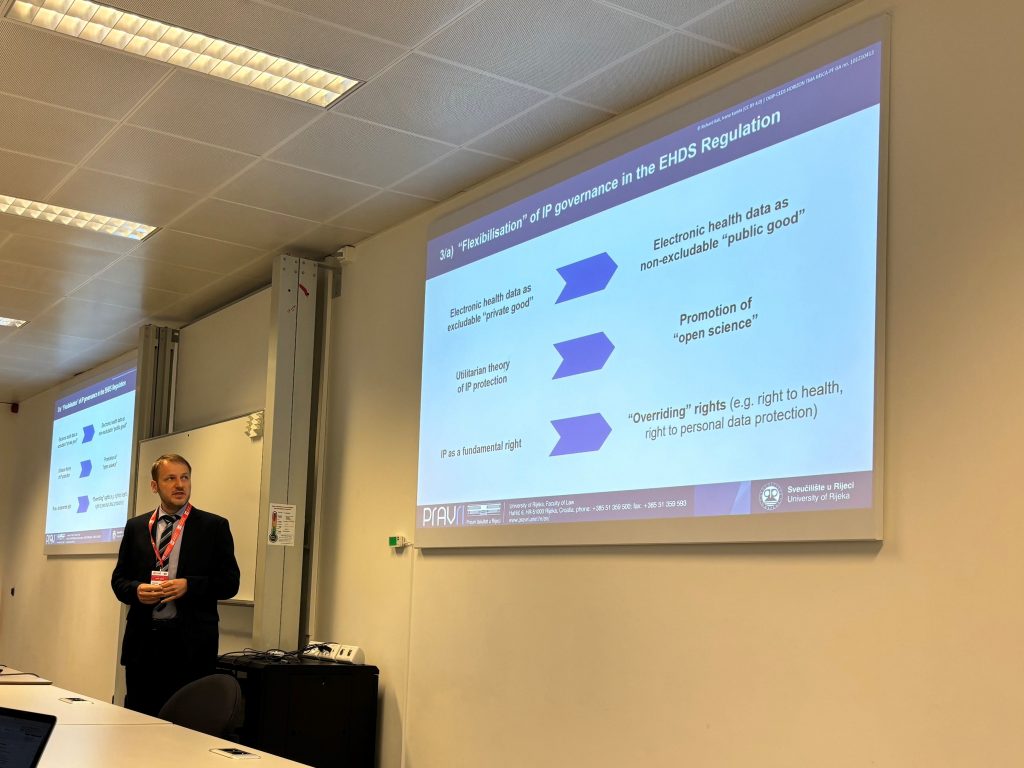About the project
The development of a data-driven economy that capitalises on the potentials of digital transformation could bring huge benefits across sectors and domains (such as the provision of more personalised healthcare, improved energy efficiency or more efficient transport systems), but it also poses significant risks and challenges (including the necessity to mitigate/eliminate risks and balance often competing rights and interests associated with data usage). To maximise those potentials, in its European Strategy for Data (2020), the Commission set forth to create a single market for data by setting rules on access to, sharing of and reuse of data, supplemented by the development of Common European Data Spaces in a broad range of sectors and domains. In support of those efforts, during the 2019–24 political mandate, the EU adopted several horizontal legislative acts (Data Governance Act, Data Act, AI Act), as well as the European Health Data Space (EHDS), the first sectoral legislative framework for a Common European Data Space. However, certain aspects of those legislative acts have been criticised by stakeholders for failing to ensure legal consistency, fair allocation of rights and responsibilities and due mitigation/elimination of data protection and intellectual property (IP)-related risks.
Acknowledging the pressing challenges ahead of its 2024–2029 mandate, the European Commission has pledged to draw on existing data rules to ensure a simplified, clear and coherent legal framework for data sharing at scale under the (forthcoming) European Data Union Strategy. At the same time, as numerous EU-funded data space pilot projects are making strides, discussions on the creation of Common European Data Spaces are expected to enter a more advanced (possibly legislative) stage in further sectors and domains. In anticipation of those developments, the ‘Data Governance and Intellectual Property Governance in Common European Data Spaces’ (DGIP-CEDS) project analyses how existing and future legislative frameworks (and accompanying contractual frameworks) could be fine-tuned or conceptualised to ensure the adoption and implementation of fair data economy principles in Common European Data Spaces. DGIP-CEDS intends to contribute to EU policy developments by identifying cross-sector commonalities and developing, where possible, common or similar data governance and related IP governance solutions, which could be adopted or implemented across different sectors or domains. As Common European Data Spaces are being developed in sectoral or domain-specific silos, DGIP-CEDS seeks to aggregate and transmit knowledge between the development of data spaces to support the adoption of adequate, effective and consistent legal frameworks.
Informacije o financiranju i pravne napomene

Granting authority: European Research Executive Agency (REA) under the powers delegated by the European Commission
Grant agreement no.: 101210413 — DGIP-CEDS
CORDIS DOI: https://doi.org/10.3030/101210413
Coordinating entity: University of Rijeka, Faculty of Law [Sveuciliste u Rijeci, Pravni fakultet] (PRAVRI)
Project duration: 2025.04.01. – 2027.03.30.
Disclaimer: Funded by the European Union. Unless indicated otherwise, the views expressed in this project are purely those of the author and may not in any circumstances be regarded as stating a position of the European Commission, the European Research Executive Agency (as the granting authority) or any other organisation. Neither the European Union, nor the granting authority can be held responsible for them.
You may download DGIP-CEDS project brochure here.
Project content
Research objectives
DGIP-CEDS aims to map, analyse and further develop legal definitions, rights and obligations, structures, procedures and related mechanisms to support the conceptualisation and operationalisation of (potentially recurring) data governance and related intellectual property (IP) governance issues in Common European Data Spaces. The specific research objectives (and corresponding work packages) are:
- to map legal sources, principles, requirements and data space configurations which may define data governance and IP governance in Common European Data Spaces;
- to analyse the legal operationalisation of data governance and IP governance requirements in the implementation of the European Health Data Space (EHDS) (by focusing on the national implementation of the EHDS by public sector bodies in Croatia and on the rights/obligations and interests of various health stakeholders);
- to develop legal solutions to support the conceptualisation of data governance and IP governance requirements in other Common European Data Spaces (by considering developments in the energy, industrial-manufacturing, and smart city and communities data spaces and the rights/obligations and interests of relevant stakeholders).
In principle, the data governance and IP governance aspects of a Common European Data Space concern the development of a framework that outlines clear roles, rights and duties, procedures and mechanisms, infrastructure, standards and other relevant measures to ensure the effective protection of data, respect for fundamental and acquired rights and legitimate interests, while facilitating openness to data sharing and data reuse for the purpose of creating shared value among relevant stakeholders. Accordingly, DGIP-CEDS focuses on the following legal problems in Common European Data Spaces and their (cross-)sectoral implications:
- Scope, definitions and functional roles
- How to define data products and related concepts?How to delimit personal data (special categories of personal data) and non-personal data in scope?
- How to include privately-held data and data held by public sector bodies?
- How to designate or determine data holders / providers, data users / consumers, data subjects, third-party rights holders, service providers / enablers, other participants, data space governance authorities and supervisory authorities?
- Interaction with other legislations
- How to ensure consistency with the cross-sectoral EU digital legislative frameworks?
- How to permit connection of data from different Common European Data Spaces?
- Rights and duties of actors in various data space configurations
- What types of legal organisational forms and governance frameworks are permitted for the establishment of data spaces?
- How to allocate responsibilities and enforcement powers: (i) in a peer-to-peer data space; (ii) in a single data space coordinated by a data space governance authority with an extensive or limited role; or (iii) in a federated data space?
- Facilitating the sharing of ‘FAIR’ (findable, accessible, interoperable and reusable) data sets and the potential effect of data sharing on the ‘fair’ balancing of fundamental rights, acquired rights and legitimate interests
- How data-sharing obligations may simultaneously affect respect for privacy, protection of personal data, consumer protection, the right to property, freedom to conduct business etc.?
- Determining ‘fair’ conditions under which data users may access data
- Mandating vs incentivising data sharing
- Purposes of use and prohibited use purposes
- Data permitsInstitutional, data sharing and service agreements
- Model contractual terms and ‘unfair’ contractual terms
- Anonymisation, pseudonymisation and synthetic data
- Natural persons’ right to object
- Accountability and liability
- Principles for the calculation of ‘fair’ fees
- ‘Fair’ IP governance
- Should the data holder or other rights holder have a right to refuse data sharing on specific grounds?
- ‘Fair’, reasonable and non-discriminatory licensing and non-disclosure agreements available for cases when data sets subject to IP rights and/or trade secrets are made available
- ‘Fair’ conditions for international data transfers
- Necessity for data localisation requirements vs considerations to facilitate international data flows, and the principle of reciprocity
______________________________________________________________________________________________________________
Work packages
WP1: Landscape analysis and model-building for data governance and IP governance in Common European Data Spaces
D1.1: Typology of data governance and IP governance in Common European Data Spaces (2025, Q4)
The deliverable aims to map legal sources, principles, requirements and data space configurations which may define data governance and IP governance in Common European Data Spaces.
WP2: Impact analysis of the implementation of the European Health Data Space (EHDS)
D2.1: Impact analysis of data governance and IP governance in the implementation of the European Health Data Space (EHDS) (2026, Q2)
The deliverable aims to analyse the legal operationalisation of data governance and IP governance requirements in the implementation of the European Health Data Space (EHDS) (by focusing on the national implementation of the EHDS by public sector bodies in Croatia and on the rights/obligations and interests of various health stakeholders).
WP3: Projective analysis for future Common European Data Spaces
D3.1: Legal solutions to support the conceptualisation of data governance and IP governance requirements in Common European Data Spaces (2027, Q1)
The deliverable aims to develop legal solutions to support the conceptualisation of data governance and IP governance requirements in other Common European Data Spaces (by considering developments in the energy, industrial-manufacturing, and smart city and communities data spaces and the rights/obligations and interests of relevant stakeholders).
WP4: Training and transfer of knowledge
Key outputs:
University seminar on European Health Data Space
University seminar on Common European Data Spaces
University workshop on Marie-Skłodowska Curie Postdoctoral Fellowship
See also ‘news and activities’ below
WP5: Communication and dissemination
Key outputs:
D5.1: Communication and dissemination plan (2025, Q2)
Events:
European Researchers’ Night (organisation of local event for the general public)
Stakeholders’ roundtable on the implementation of the European Health Data Space (EHDS) Regulation in Croatia (2025, Q4) (organisation of national multi-stakeholder event)
Conference on the Law of Common European Data Spaces (2027, Q1) (organisation of European multi-stakeholder event)
Scientific papers and conference presentations:
under peer-review / to be added
WP6: Management activities
Key outputs: D6.1: Data management plan (2025, Q2)
Research staff
Marie Skłodowska-Curie Actions (MSCA) Postdoctoral Fellow
E-mail: richard.rak@uniri.hr
Project coordinator
Prof. Dr. Sc. Ivana Kunda, dipl. iur.
Vice-Dean for Research, Head of Department of Private International and European Law
E-mail: ivana.kunda@uniri.hr
Activities
21 Feb 2025: MSCA Postdoctoral Fellowship award: DGIP-CEDS in Croatian news media

Croatian national newspaper (Novi list) reports on the prestigious MSCA Postdoctoral Fellowship (MSCA-PF) for innovative scientific projects in the EU that was granted to support the research work in DGIP-CEDS. The article points out that DGIP-CEDS was one of only three MSCA-PF research projects which has received funding in Croatia from over 10,000 postdoctoral applications in all scientific disciplines across the EU. The article explains how DGIP-CEDS intends to contribute to the effective development and implementation of Common European Data Spaces in various sectors and domains by analysing underlying data governance and intellectual property governance challenges. The article mentions that the research work will be performed mostly by Dr. Richard Rak; the project will be coordinated by Prof. Dr. Sc. Ivana Kunda and hosted by the Faculty of Law of the University of Rijeka. The text is available at this link: https://novine.novilist.hr/vox/2025/02/5/
15 May 2025: Speaking at the Horizon Europe – MSCA Info Day at UNIRI

Horizon Europe Marie Skłodowska-Curie Actions (MSCA): Postdoctoral Fellowships Info Day was organised by the University of Rijeka Center for Support in Preparing the Competitive Research Projects, at the Faculty of Civil Engineering. The project coordinator Prof. Dr. Ivana Kunda was invited to present her experience in applying for the project DGIP-CEDS, as a good practice. More on the event and presentation by Prof. Dr. Ivana Kunda is available here.
24-26 June 2025: Sharing Insights at the MSCA Postdoctoral Fellowship institutional workshop at the University of Rijeka

The University of Rijeka and its Pre-Award Research Support Centre organised a three-day workshop for potential Marie Skłodowska-Curie Actions (MSCA) postdoctoral applicants, who are considering the university as their host institution. In a view of his successful application for the project DGIP-CEDS, Dr. Richard Rak gave a presentation sharing insights on how to write a quality MSCA-PF application, develop an impactful and feasible research management plan, and make the most of the potential benefits of MSCA opportunities at the University of Rijeka and beyond. In addition to the program of the workshop and the report from the workshop the presentation is also available.
10-12 September: Presenting at the European Policy for Intellectual Property Association (EPIP) Annual Conference 2025

Dr. Richard Rak presented a joint paper co-authored with Prof. Dr. Ivana Kunda, entitled “Intellectual Property (IP) Governance in the European Health Data Space (EHDS): Flexibilisation Raises Stakes for Healthcare Researchers and Innovators in the EU”, at the EPIP 2025 Annual Conference in Antwerp, Belgium.
The presentation, which addresses IP governance within the EHDS, emphasised the flexibilisation of provisions concerning the exclusive rights of IP holders, which potentially alters relationships and balances among stakeholders and consequently raises the stakes for healthcare researchers and innovators in the EU. This presentation introduced preliminary research findings from the DGIP-CEDS project.
In addition to the presentation, conference program is also available.